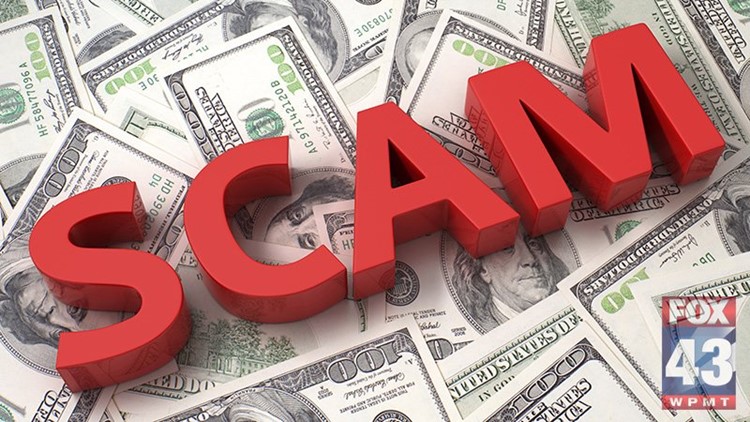HARRISBURG — Attorney General Bruce R. Beemer today issued a reminder to service members and veterans to be aware of scams targeting the military community and their families.
The reminder comes as Pennsylvanians and others across the country prepare to observe Veterans Day, which is Friday, Nov. 11.
“Unfortunately, the Attorney General’s office frequently receives complaints from service members and veterans who have been taken advantage of by scam artists,” Attorney General Beemer said. “We want to help the people who have sacrificed for our country take the proper precautions to safeguard their savings and hard-earned benefits.”
The Office of Attorney General maintains an Office of Military and Veterans Affairs. The office was created to provide assistance to Pennsylvania veterans and military communities through education and outreach, as well as mediation, investigation and litigation. This office also works with and refers matters to community organizations and government agencies.
Below is a list of scams and tips for service members and veterans to protect their finances and personal information.
Pension poaching
There are dishonest financial planners and advisors who target veterans and their families, offering assistance with filing paperwork or claiming they can help veterans qualify for Veterans Administration (VA) benefits. These advisors often fail to fully explain the details or long-term consequences of their advice. Some have sophisticated operations, which makes it more difficult to recognize when they are offering advice that you can ordinarily get for free, or selling you a product you don’t really need.
In one common approach, an advisor claims they can assist a veteran or their family in qualifying for Aid and Attendance benefits (A&A) by transferring the veteran’s assets into a trust or by purchasing a product, such as an annuity. The transferring of such assets may result in the veteran failing to qualify for other services, such as Medicaid, or being forced to pay back any payment or services received erroneously. Some advisors charge hundreds or thousands of dollars for incomplete or inaccurate advice and are long gone when the veteran has a question.
To protect yourself and your family, know where you can find an advisor who is accurate and sincere.
The following are tips to protect veterans from pension poaching:
• Don’t pay for a service that is free. There is no cost for forms or to apply for veterans benefits, and you can get free assistance from trained veterans service officers across Pennsylvania.
• Check the VA’s accreditation of a person or group.
• Ask an advisor what the impact of purchasing his product will be on your eligibility for other benefits such as Medicaid.
• Take time to consider your options before signing a contract.
• Don’t be pressured into accepting an advisor’s advice. If an advisor pressures you, or offers vague or evasive answers to your questions, take those as indicators you should not trust them with your money or paperwork.
• Get everything you’ve discussed in writing.
• Don’t believe a promise or guarantee offered by an advisor claiming they can secure A&A benefits. There are no guarantees.
Merchandise Sales
Dishonest businesses target the military community through advertising, discounted merchandise and services and financing. In many cases, only after making these purchases do service members and veterans become aware that they have been sold grossly overpriced jewelry, household goods and electronics with unreasonably high interest rates.
Additionally, these businesses engage in abusive collection practices, including such tactics as constantly contacting service members’ superiors, which causes some service members to lose security clearances and face other backlash. Furthermore, some of these businesses have filed lawsuits to collect on its loans in only a few limited jurisdictions despite the service member’s location, deployment status or residence.
These unlawful business practices are circulated through misrepresentations and omissions in advertising.
Here are some tips to avoid becoming victimized by these practices:
• Conduct comparison shopping of costs of both merchandise and financing.
• Get referrals and recommendations from friends, family members and online sources.
• Contact the Better Business Bureau to see whether the business is accredited and whether there are any complaints against the company.
• Read any financing materials very closely and ask questions.
Questionable charities
Disreputable charities capitalize on the selfless and generous nature of the military community by soliciting them for donations geared to benefit specific groups of veterans. Unfortunately, it has been reported that some of these entities have either misrepresented themselves as well-known or respected charities, or they have misrepresented who will receive the benefit of these donations or how much of the donation they will receive.
Here are tips to avoid being taken advantage of:
• Ask for and read literature about a charity before you make a donation.
• Find out how much of your donation goes to helping people and program services, as opposed to fundraising and administrative expenses.
• Do not feel pressured to contribute on the spot.
• If you decide to contribute, pay by check. Make the check out to the charity, not to a company or the individual collecting the donations.
Veterans who have questions or believe they are victims of these scams may call the Attorney General’s Office of Military and Veterans Affairs at 717-783-1944 or email pavets@attorneygeneral.gov.
SOURCE: PA. Attorney General’s Press Office



